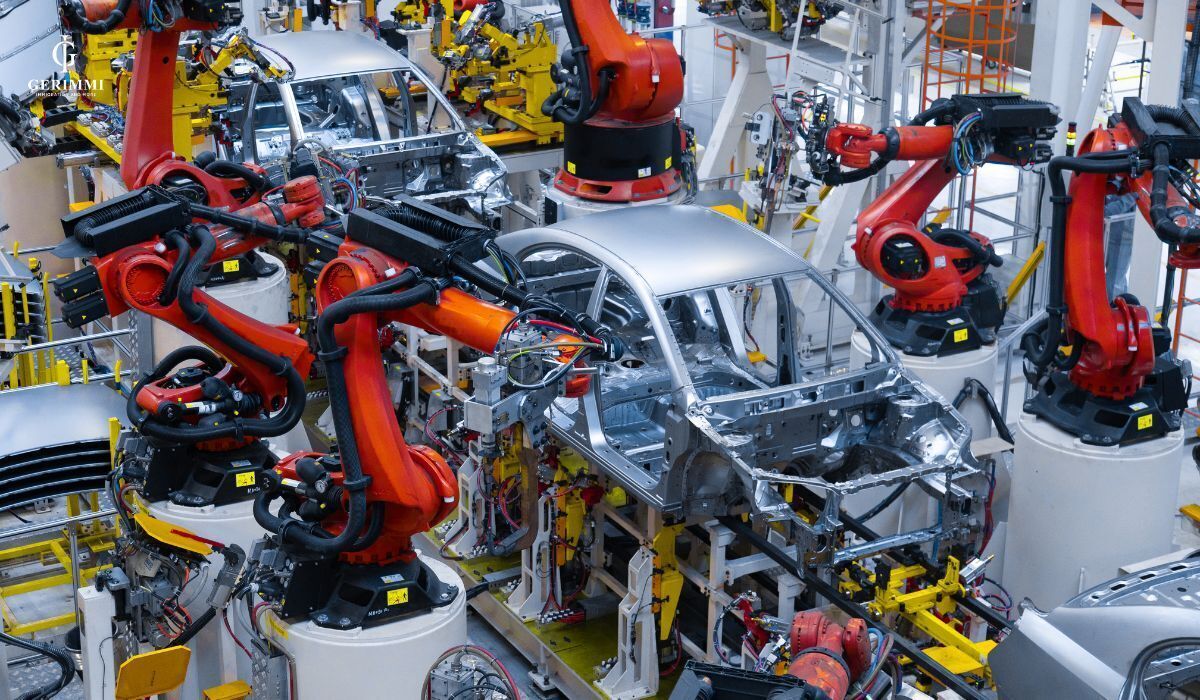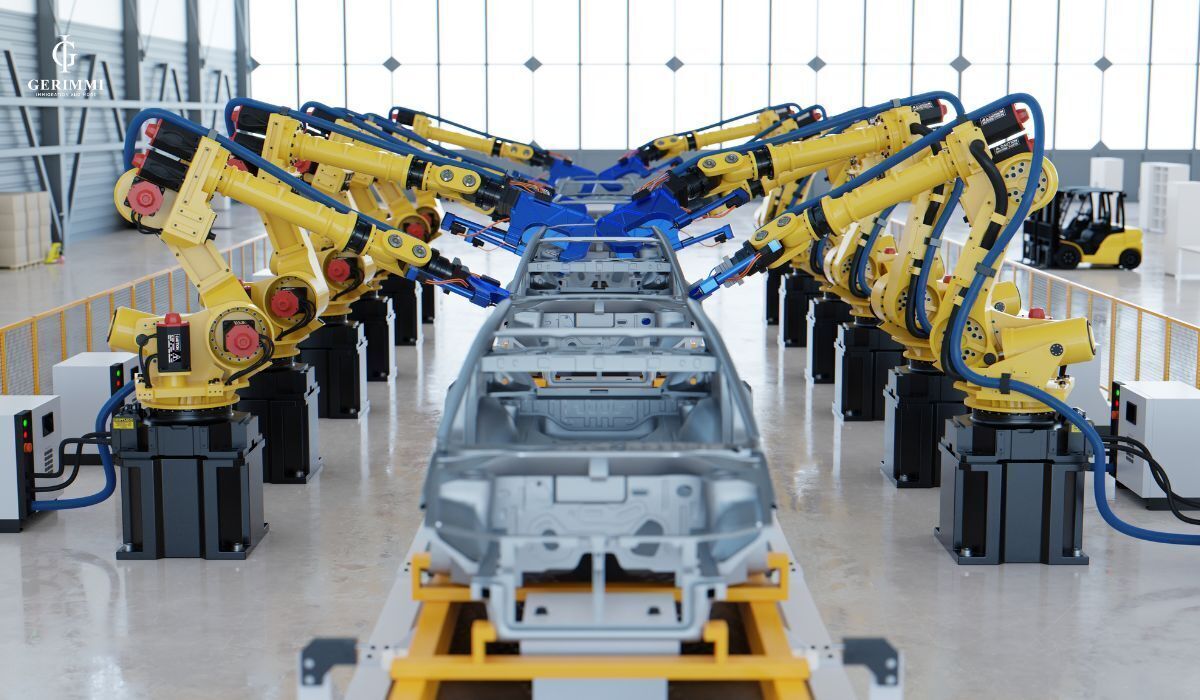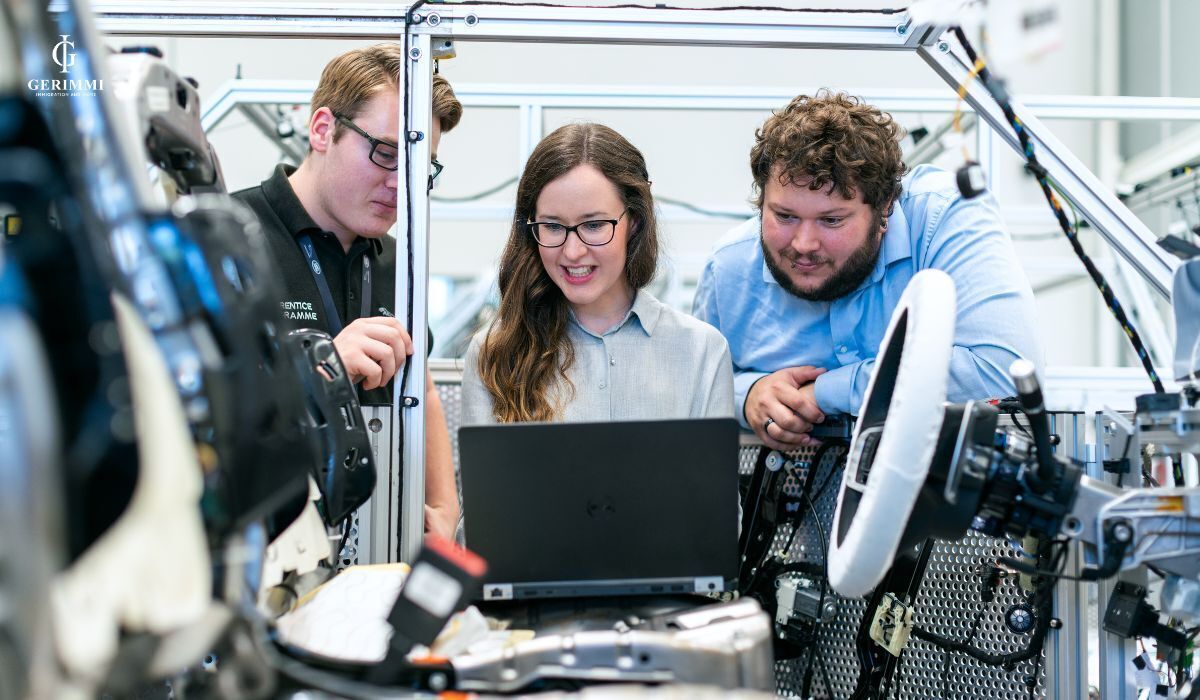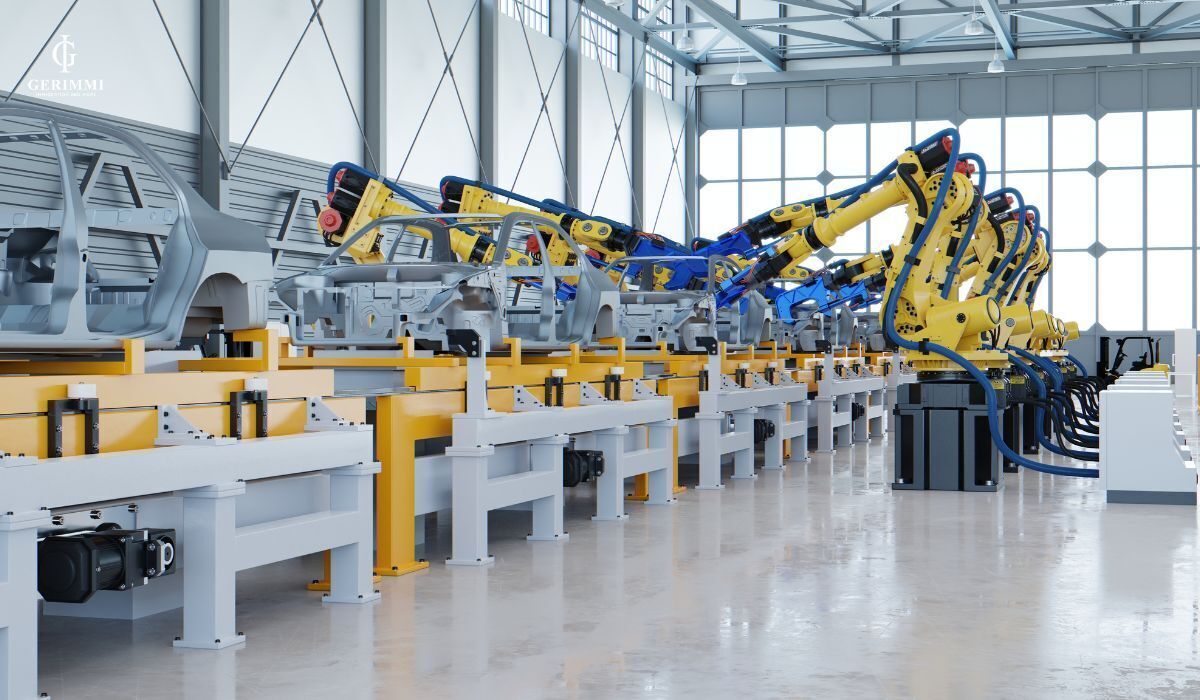Studying automotive engineering in Finland is becoming an attractive option for international students thanks to its high-quality practical training program, wide-open job opportunities and stable income. Studying automotive engineering in Finland not only helps to accumulate professional skills and access modern technology, but also opens the way to long-term settlement and sustainable career development.
I. Why is studying automotive engineering in Finland becoming a trend?
In recent years, studying automotive engineering in Finland has become a prominent trend among international students thanks to its high-quality practical training system and wide-open employment opportunities. The automotive industry in Finland is growing strongly, especially with the explosion of electric vehicles, green technology and digitalization in cars, increasing the demand for technical human resources and specialized workers.
In addition, international vocational study in Finland helps students access a European standard learning environment, develop practical skills, and easily integrate into the labor market after graduation.

II. Benefits of choosing to study auto mechanics
- Develop in-depth practical skills
Automotive apprenticeship programs in Finland focus on practice and professional skills, helping students quickly master professional knowledge and enter the profession early. Students have direct contact with vehicles, modern repair technology and specialized equipment in the industry.
- High job opportunities and attractive income
The automotive industry is a hot industry in Finland with a large demand for human resources, especially in the fields of repair, maintenance, and electric vehicle engineering. Studying automotive engineering helps students easily find a job after graduation, have a stable income and long-term promotion opportunities.
- Access to modern technology and future vehicle trends
Students are trained in skills related to electric vehicles, hybrid vehicles, green technology and electrical and electronic systems in cars. This helps them adapt quickly to technological changes and increase their competitive value in the labor market.
- International and multicultural learning environment
Studying automotive engineering in Finland creates opportunities to interact with international students, practice soft skills, communication skills and teamwork management. This is a great advantage to help students quickly integrate into a multicultural working environment and expand their professional network.
- Opportunity for permanent settlement and sustainable career development
Automotive students have the opportunity to apply for a post-graduation work visa and settle in Finland. This benefit, combined with the practical experience gained, helps build a long-term, stable career that is aligned with personal goals.

III. Overview of the automotive industry in Finland
The automotive industry in Finland includes many fields such as automotive mechanics, repair engineering, automotive electronics and maintenance services. This is a hot industry in Finland with high demand for human resources, especially in the context of rapidly developing green technology and electric vehicles.
Automotive vocational students will be trained in both theory and practice, with the opportunity to participate in internships at garages, car companies and automobile manufacturing enterprises, helping to accumulate practical experience during the course of study.
IV. Finnish automotive vocational training system
The Vocational Education and Training (VET) system in Finland is designed to train students to become professional automotive technicians, meeting the real needs of the market. The curriculum combines theory and practice, with internship hours at garages, repair shops or car manufacturers, helping students accumulate professional experience during their studies.
In addition, Finnish vocational schools often have modern facilities, advanced equipment and experienced teaching staff, creating optimal conditions for students to develop practical skills.

V. Criteria for choosing a school and auto vocational training program
1. Training quality and facilities
Training quality is an important factor that determines the effectiveness of automotive vocational training in Finland. Vocational schools have a team of experienced lecturers, modern facilities, and workshops with specialized automotive equipment that will help students master practical skills, from basic repairs to automotive electricity and electronics and electric vehicle technology.
2. Practice & Internship Program
Automotive apprenticeships in Finland often combine theory and practice, but the big difference is that schools have links with garages, car companies or car manufacturers to provide students with practical internships. Internships not only help students apply their knowledge in a real-life environment, but also open up direct employment opportunities after graduation.
3. Budget and study time
When choosing an automotive school and program, students need to consider tuition, living expenses, and training time. Some programs last 2-3 years and are affordable, while some require longer study time, more hands-on experience, and are more expensive.
4. Support for settlement and work opportunities after graduation
Some vocational schools in Finland offer support programs for international students to apply for work visas and permanent residence. This is an important factor that helps automotive vocational students not only quickly find a job but also build a sustainable career in Finland. When choosing a school, students should learn carefully about employment support services, career counseling, business connections and settlement programs.

VI. Job and settlement opportunities after studying automotive engineering in Finland
- The automotive industry is short of workers in Finland.
The demand for technicians, mechanics, and experts in automotive electronics, especially electric vehicles and green technology, is increasing. Studying automotive engineering in Finland helps international students easily access stable job positions right after graduation.
- Job opportunities at garages, car companies and car manufacturers
Graduates can work in garages, car companies, manufacturing companies or auto support services. Apprenticeships through practical programs help students accumulate practical experience, increase their employability and quickly integrate into the professional working environment.
- Possibility of permanent settlement in Finland
Finland gives priority to grantingwork and settlement visasfor industries lacking human resources, including the automotive industry. International students studying automotive have the opportunity to apply for long-term work permits, accumulate experience and develop a sustainable career.
- Opportunities for advancement and career development
After gaining work experience, students can advance to positions of technical management, automotive electrical and electronic experts, or open their own garage. This is an opportunity to increase income and develop a long-term career in the industry.Finnish automotive industry.
- Professional networking and internships expand opportunities
Apprenticeships and internships help students build professional networks with businesses, colleagues and industry experts. This is an important foundation for finding a job quickly, developing skills and expanding opportunities for settlement and career advancement.

VII. Income and career prospects in the automotive industry in Finland
|
Position/Occupation |
Average income level |
|
Auto Technician/Mechanic |
2,500–3,500 EUR/month |
|
Automotive Specialist/Engineer |
4,000–5,500 EUR/month |
|
Technical Manager/Garage Supervisor |
4,500–6,000 EUR/month |
|
Electric Vehicle Technician/Green Technology |
3,500–5,500 EUR/month |
|
Student internship + language skills |
2,800–4,500 EUR/month |
VIII. Challenges and notes when learning automotive skills in Finland
- High practical skills required: The automotive industry requires students to be proficient in electrical and electronic repair, maintenance, and troubleshooting skills. International students should be prepared to put in a lot of practice to keep up with the program and get the most out of it.
- Language and communication skills: Although many automotive apprenticeships in Finland are taught in English, Finnish language skills are still required when doing an internship in a garage or working directly with customers. Good language preparation helps students integrate quickly and increases their employment opportunities after graduation.
- Weather and living environment: The cold Finnish climate, especially in winter, can be challenging for international students. It is necessary to prepare clothes, health and adapt to living conditions to maintain effective learning and practice.
- Living and study expenses: Studying automotive engineering in Finland not only includes tuition fees but also living expenses in major cities. Students need to plan their budget, save money and look for scholarships or financial aid to reduce the cost pressure.
- Competition with local labor: Despite the high demand for human resources, international students still have to compete with local workers and other graduates. Improving practical skills, foreign languages and participating in internships early will create a distinct advantage.
- Balance between study and internship: Automotive apprenticeship programs in Finland focus on practice, so students need to know how to manage their time, balance between theory, practice and internship to achieve the best results.
-

Conclusion
Studying automotive engineering in Finland offers attractive career opportunities, stable income and the possibility of permanent settlement. International students can choose hot professions such as auto repair, electricity - electronics, electric vehicles and green technology to optimize employment opportunities.


